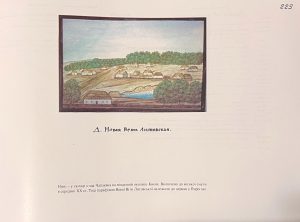Project “16 Days of Gratitude”: day 9
Day 9. Vita-Lytovska
One could tell a lot more about Prince Konstantin Ostrozhsky but strangely enough, he almost never visited Kyiv, and only found there a place of eternal peace. He could be met either in military campaigns, or concerned with state affairs (after all, he was the hetman of the Grand Duchy of Lithuania), or in the estates of his native Ukrainian Volhynia or rebuilding Vilnius. When we were returning to Kyiv, we drove through the area Vita-Lytovska and… we were not mistaken. According to the legend, the settlement was founded by people from Lithuania who were bindyuzhniki (hired heavy and very capacious pods for transportation) and forest harvesters. But the name, which definitively appears since 1602, indicates a possible ancient origin from the times of settlements in Kyiv and nearby lands as part of the Grand Duchy of Lithuania. Back in the first half of the 19th century, there were two villages: Stara Vita Litovska and Nova Vita Litovska. In the second half of the 19th century they merged into one and began to be called simply Vita Lytovska (or Lytovska Vita). Over time, the village became the property of the Kyiv-Pechersk Lavra. Already after the Second World War, in 1946, the village was renamed to Chapaevka, in honor of Vasiliy Chapaev, a “red” military figure during the Russian Civil War. The old name was returned only in 2018. However, today ancient history remnants are hardly to be found, unfortunately, you will see ordinary private buildings, typical for the surroundings of Kyiv, and only the notes of the French traveler De la Fliese in the 19th century keep information about the village that once existed here.
Dr. Ruslana Martseniuk
Photos by dr. Ruslana Martseniuk
Project “16 Days of Gratitude”: day 8















